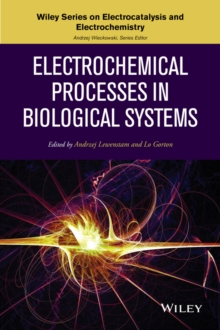
Fuel Cell Catalysis : A Surface Science Approach Hardback
by Andrzej Wieckowski
Edited by Marc (Leiden University) Koper
Part of the The Wiley Series on Electrocatalysis and Electrochemistry series
Hardback
Description
Wiley Series on Electrocatalysis and Electrochemistry Fuel Cell Catalysis A Surface Science Approach A Core reference on fuel cell catalysis Fuel cells represent an important alternative energy source and a very active area of research.
Fuel Cell Catalysis brings together world leaders in this field, providing a unique combination of state-of-the-art theory and computational and experimental methods.
With an emphasis on understanding fuel cell catalysis at the molecular level, this text covers fundamental principles, future challenges, and important current research themes. Fuel Cell Catalysis: Provides a molecular-level description of catalysis for low-temperature polymer-electrolyte membrane fuel cells, including both hydrogen-oxygen cells and direct alcohol cellsExamines catalysis issues of both anode and cathode such as oxygen reduction, alcohol oxidation, and CO toleranceFeatures a timely and forward-looking approach through emphasis on novel aspects such as computation and bio-inspirationReviews the use and potential of surface-sensitive techniques like vibrational spectroscopy (IR, Raman, nonlinear spectroscopy, laser), scanning tunneling microscopy, X-ray scattering, NMR, electrochemical techniques, and moreReviews the use and potential of such modern computational techniques as DFT, ab initio MD, kinetic Monte Carlo simulations, and moreSurveys important trends in reactivity and structure sensitivity, nanoparticles, "dynamic" catalysis, electrocatalysis vs. gas-phase catalysis, new experimental techniques, and nontraditional catalysts This cutting-edge collection offers a core reference for electrochemists, electrocatalysis researchers, surface and physical chemists, chemical and automotive engineers, and researchers in academia, research institutes, and industry.
Information
-
Available to Order - This title is available to order, with delivery expected within 2 weeks
- Format:Hardback
- Pages:720 pages
- Publisher:John Wiley & Sons Inc
- Publication Date:29/04/2009
- Category:
- ISBN:9780470131169
Other Formats
- PDF from £141.06
Information
-
Available to Order - This title is available to order, with delivery expected within 2 weeks
- Format:Hardback
- Pages:720 pages
- Publisher:John Wiley & Sons Inc
- Publication Date:29/04/2009
- Category:
- ISBN:9780470131169










